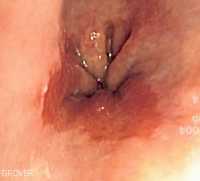MedicalResearch.com Interview with:
Paul Lyon DPhil, MRCS
Academic Clinical Fellow in Radiology
Oxford University Hospitals NHS Foundation Trust
Oxford, UK
MedicalResearch.com: What is the background for this study? What are the main findings?
Response: Delivering therapeutic doses of systemic chemotherapy to solid tumours, whilst ensuring side effects remain tolerable, has a presented a long-standing and unsolved challenge in oncology. With the advent of smart nanomedicines for clinical use, such as Lyso-Thermosensitive Liposomal Doxorubicin (LTLD, ThermoDox
®, Celsion, USA), which has been formulated to release its doxorubicin content at 2.5°C above body temperature, there is now opportunity for targeted tumour therapy in combination with therapeutic devices.
Much like a magnifying glass can focus energy from the sun to burn a hole in paper, ultrasound can be focused deep within the body to induce therapeutic effects in tumours, including ablation, hyperthermia and other bioeffects. Since its inception in the 1940s, focused (or therapeutic) ultrasound has evolved and is now FDA-approved for a variety of indications including ablation of several tumour types, virtue of being safe, non-invasive and non-ionising.
Building on decades of preclinical research efforts worldwide, the TARDOX study is the first clinical trial to attempt triggered drug delivery to a target tumour non-invasively using an external focused ultrasound device. This phase 1 study which ran between March 2015-March 2017 in Oxford, UK, treated 10 patients with inoperable primary or secondary liver tumours which were either stable or refractory to previous chemotherapies. In each patient, a single intervention under general anaesthetic was performed during which a selected liver tumour was targeted and gently heated with focused ultrasound following an intravenous infusion of LTLD. Biopsies were used to determine the quantity of intratumoral doxorubicin before and after the ultrasound exposure.
(more…)

































